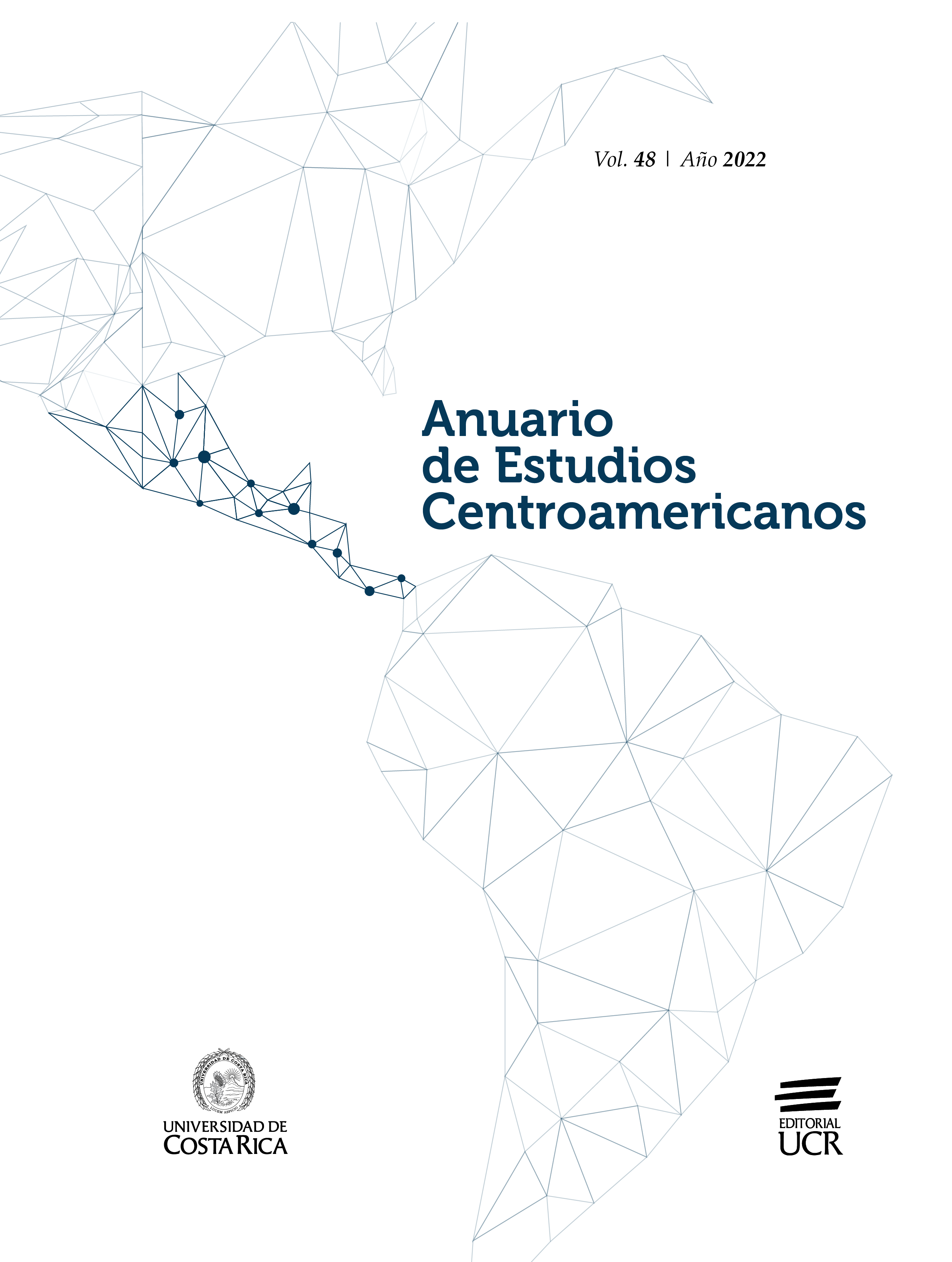Abstract
This paper explores how is evidence gathered, transformed, and selected during the current COVID-19 crisis, employing Panama’s housing ministry as a case study. We wish to better understand evidence pathways and provide strategies increasing scientific evidence uptake. Our research strategy was organized into a three-step sequential model: 1. The evidence gathering phase: we studied Covid-19’s effects on households deploying 135 surveys (n=135). 2. The evidence transformation phase: studying housing sector evidence assembled by different ministry divisions via 12 surveys and interviews with ministry personnel (n=12), and 3. The evidence selection phase: studying evidence employed by decision-makers, through a semi-structured interview with the housing minister (n=1). Results show that evidence pathways depend on social phenomena, including internal and external political power negotiations, social class identities, and representations of the role of government.
References
Allen, K. et al. (2020). Tracking global evidence-to-policy pathways in the coronavirus crisis. INGSA. https://www.ingsa.org/wp-content/uploads/2020/09/INGSA-Evidence-to-Policy-Tracker_Report-1_FINAL_17Sept.pdf
Andrew, A. et al. (2020). Family time use and home learning during the COVID-19 lockdown. Institute for Fiscal Studies. https://doi.org/10.1920/re.ifs.2020.0178
Ansell, C. and Geyer, R. (2016). “Pragmatic complexity” a new foundation for moving beyond “evidence-based policy making”. Policy Studies. https://doi.org/10.1080/01442872.2016.1219033
Barone Gibbs, B. et al. (2021). Covid-19 shelter-at-home and work, lifestyle and well-being in desk workers. Occupational Medicine, 71(2): 86-94. https://doi.org/10.1093/occmed/kqab011
Bartoszek, Adrian et al. (2020). Mental Well-Being (Depression, Loneliness, Insomnia, Daily Life Fatigue) during COVID-19 Related Home-Confinement—A Study from Poland. International Journal of Environmental Research and Public Health, 17(20). https://doi.org/10.3390/ijerph17207417
Castillo Miranda, P. (2019). Miembros del PRD piden trabajo a ‘Nito’ Cortizo, El Siglo. http://elsiglo.com.pa/panama/miembros-piden-trabajo-nito-cortizo/24139791
Christensen, J. (2020). Expert knowledge and policymaking: a multi-disciplinary research agenda. Policy & Politics [Preprint]. https://doi.org/10.1332/030557320X15898190680037
Després, C. and Lord, S. (2005). Growing Older in Post-war Suburbs: The Meanings and Experiences of Home. In G. D. Rowles and H. Chaudhury (Eds.) Home and identity in later life: International perspectives (pp. 317-337). Springer.
DeWolfe, D. (2000). Training Manual for Mental Health and Human Service Workers in Major Disasters. 2nd edn. Edited by D. Nordboe. National Mental Health Services Knowledge Exchange Network.
French, R. D. (2019). Is it time to give up on evidence-based policy? Four answers. Policy & Politics, 47(1): 151-168. https://doi.org/10.1332/030557318X15333033508220
French, R.D. (2018). Lessons from the evidence on evidence-based policy: LESSONS ON EVIDENCE-BASED POLICY. Canadian Public Administration, 61(3): 425-442. Available at: https://doi.org/10.1111/capa.12295
García de Paredes, P. (2019). Del Estado como Empresa: Diferencias y Contradicciones entre el discurso económico Neoliberal y las Políticas del Estado-Nación. Cátedra, 16(16): 108-125. http://portal.amelica.org/ameli/jatsRepo/227/227978019/html/
García de Paredes, P. (2021). In Cooperation with INGSA: Panama City, Inequality and Covid-19. GRIP Global Research Programme on Inequality. https://gripinequality.org/2021/10/in-cooperation-with-ingsa-panama-city-inequality-and-covid-19/
Harper, D. (2001). Online Etymology Dictionary. https://www.etymonline.com/
IDOM et al. (2021). Plan estratégico del distrito de Panamá. Anexo 1. Tomo 1. http://plandistritalpanama.com/wp-content/uploads/2021/03/2-ANEXO-1-TOMO-1-PED-marzo-2021.pdf
Instituto Nacional de Estadística y Censo de Panamá. (2020). Gráfica 2. Evolución de la informalidad. https://inec.gob.pa/archivos/P0705547520201222124619Gr%C3%A1fica%201.pdf
Instituto Nacional de Estadística y Censo de Panamá. (2021). Gráfica 1. Evolución del desempleo. https://inec.gob.pa/archivos/P0705547520201222124619Gr%C3%A1fica%201.pdf
Lord, S., Després, C. and Ramadier, T. (2011). When mobility makes sense: A qualitative and longitudinal study of the daily mobility of the elderly. Journal of Environmental Psychology, 31(1): 52-61. https://doi.org/10.1016/j.jenvp.2010.02.007
Matamanda, A. R., Chirisa, I. and Rammile, S. (2021). Elitist Domination and Its Import: Survey of Four Decades of Perpetuation of Inequities in Zimbabwe. Politikon, 48(3): 450-467. https://doi.org/10.1080/02589346.2021.1952736
McConnell, A. and Stark, A. (2021). Understanding policy responses to COVID-19: the stars haven’t fallen from the sky for scholars of public policy. Journal of European Public Policy, 28(8): 1115-1130. https://doi.org/10.1080/13501763.2021.1942518
Parkhurst, J. O. (2017). The politics of evidence: from evidence-based policy to the good governance of evidence. Routledge, Taylor & Francis Group.
Partido Revolucionario Democrático. (2019). Plan de Acción PRD Panamá 2019-2024. PRD.
Redacción Panamá América. (2020). Coronavirus en Panamá: Laurentino Cortizo: ‘Esto es una guerra y los panameños unidos la vamos a ganar. Panamá América. https://www.panamaamerica.com.pa/sociedad/coronavirus-en-panama-laurentino-cortizo-esto-es-una-guerra-y-los-panamenos-unidos-la-vamos
Rose, D. C. et al. (2020). Improving the use of evidence in legislatures: the case of the UK Parliament. Evidence & Policy: A Journal of Research, Debate and Practice, 16(4): 619-638. https://doi.org/10.1332/174426420X15828100394351
Ross, N. (2004). Culture & cognition: implications for theory and method. Sage Publications.
Safuta, A. (2021). When policy entrepreneurs fail: Explaining the failure of long‐term care reforms in Poland. Social Policy & Administration, 55: 1098-1111. https://doi.org/10.1111/spol.12714
Sánchez-Páramo, C. et al. (2021). La pandemia de COVID-19 (coronavirus) deja como consecuencia un aumento de la pobreza y la desigualdad. World Bank VOICES. https://blogs.worldbank.org/es/voices/la-pandemia-de-covid-19-coronavirus-deja-como-consecuencia-un-aumento-de-la-pobreza-y-la
Sanderson, I. (2009). Intelligent Policy Making for a Complex World: Pragmatism, Evidence and Learning. Political Studies, 57(4): 699-719. https://doi.org/10.1111/j.1467-9248.2009.00791.x
Stoker, G. and John, P. (2009). Design Experiments: Engaging Policy Makers in the Search for Evidence about What Works. Political Studies, 57(2): 356–373. https://doi.org/10.1111/j.1467-9248.2008.00756.x
World Bank (2022). Gini index | Data. https://data.worldbank.org/indicator/SI.POV.GINI
World Bank. (2021). Country Income Groups (World Bank Classification), ChartsBin. http://chartsbin.com/view/2438
Comments

This work is licensed under a Creative Commons Attribution-NonCommercial-NoDerivatives 4.0 International License.
Copyright (c) 2022 Pablo García de Paredes

